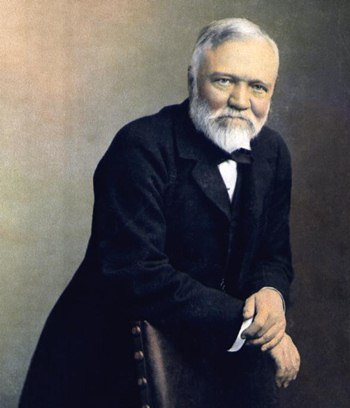
| |||||||||||||
| |||||||||||||
|
|
Strai(gh)tened Times - Admissions
Part II: Admissions Admit it: a progressive admission is a happy admission. Admissions policy is at the heart of speedway economics and if there is no income from elsewhere operating costs must be shouldered by the public at large, or at least those on home turf/shale. In order to match high running costs in 'straitened times' enough people must be encouraged to attend the racetrack and/or the levy on entrance must be raised. Concessions are a crucial aspect of admissions policy and vital to maintaining traditional support, e.g. from families, students and OAPs. Yet for those who are able and wish to contribute more there are avenues open to them, such as sponsoring races, meetings or the team itself. But what about the idea of a progressive rate for admission? After all, amongst adults of working age it stands to reason there exists a wide range of affordability when it comes to paying on entry. And consider this: the implementation of a fixed-rate levy in another, quite infamous context demonstrated how the rejection of progressiveness can be pretty problematic, to say the least. Does anyone remember the poll tax? My feeling is that people in Scotland most certainly will. It was in Scotland where the hated tax was actually introduced in 1989. A flat-rate local services tax, the poll tax stood for the notion that each and every adult was levied the same while ignoring an individual's ability to pay. That notion was eventually swept aside through people rioting in the streets of London. It even led to the downfall of a prime minister. Of course, the poll tax analogy doesn't quite work here because that was made compulsory by an act of parliament, whereas paying the flat-rate adult levy for attending speedway is voluntary: if you can't or don't want to pay, simply don't go. But why is it that these days those with the most money in society seem so resistant to paying a higher rate for goods and services than their poorer neighbours? The received logic that has developed in our society after thirty years-plus of neoliberalism has established a sense that taxation is a bad thing. Some on the right even call it immoral and tax must be continually reduced, if not scrapped altogether. For many corporations and much of the wealthy elite that seems like the de facto position already, what with recent revelations about corporate tax avoidance and the widespread use of tax havens. But this "tax as immoral" sensibility represents a carefully constructed cultural consciousness, the challenging of which may provide valuable lessons for our sport's admission policy. Did you know that in the traditional culture of the West Coast Salish, a native North American society, political influence and social status was measured by how much wealth a community could accumulate and then give away? This process was known as the potlatch and represented a values system diametrically opposed to that of western capitalism. Indeed, native North Americans didn't even use money. Needless to say, the potlatch was outlawed by the Canadian/British colonial government. How about that? Giving things away, a crime! The point here is that there is nothing intrinsically wrong with well-off patrons/spectators/citizens paying relatively more into a fund for services they value for whatever reason, whether that's for the NHS, welfare, the art of speedway racing or, indeed, the traditional potlatch. Wealthy philanthropists such as Carnegie and Gates understood/stand that kudos accrues with generous giving. So, again, why is it that people nowadays so resent paying tax? Could it have something to do with the cultural paradigm that has taken hold in parts of the west since Margaret Thatcher and Ronald Reagan began implementing as policy the ideology of 'self,' traceable to the somewhat obsessive individualism of Ayn Rand? One to think about, that one. Whatever, surely the finances of our 'curved' world would be healthier if progressive principles were applied at the point of entry - for our purposes let's call it the turnstile. Those paying/donating more on admission could be made to feel special in some way, not least by their own sense of privilege at being in that happy, affluent position in the first place, or simply self-satisfaction at making a greater contribution toward the common good. I have to say those seem like excellent values to me. After all, despite what some may have you believe, there is such a thing as society (and speedway club) in which all are interdependent. What's more, amidst it all the one person you are absolutely compelled to live with is yourself, and that's easier to do if you've been a person generous in spirit. Ok, I can sense this idea isn't going down too well. This is, after all, the 'curved' world of 2012 where celebrated 'sporting' tax-exiles continue to be cast as role models despite their often sickening hypocrisy, draping themselves in the flag and mouthing the anthem just when it suits. Let's call it the 'Island in Lewis' syndrome! Moreover, payers into any financial system need to feel assured money is being channelled with integrity towards the goals they approve. Of course, the recent Westminster expenses scandal did absolutely nothing for that. But the thrust of this argument stands and, if you need evidence for the wisdom of a progressive approach to organising your state of affairs, you could do much worse than look to the example of Denmark. Denmark: a country of relatively low executive pay, co-operative working, progressive taxation and low rates of poverty, resulting in a more equitable society, low crime and the highest happiness index in the world (for further evidence, see the book: The Spirit Level: Why Equality is Better for Everyone). Impressive, or what? Well, guess what? There's more... Denmark: a country also possessed of a fantastic speedway tradition - since the establishment of Vojens Speedway Center in 1975, probably the best speedway tradition in the world! Put simply, these days it would appear they do things better in Denmark and paraphrasing pithy advertising slogans is unnecessary to show it: the Danes have been good enough to provide evidence. For example, since 1975 how many Danish speedway world champions have there been?Happy now? Thank you. I rest my case...Olé! David. PS: To all those who over recent years have granted me free access to this 'curved' world of ours, my sincere thanks: I've loved the speedway. However, it goes without saying, from now on I'll be paying the full price, whatever that may be! Next: Part III - Gambling
This article was first published on 23rd December 2012
"This is nonsense to suggest this article is about our sport. The somewhat inaccurate references to poll tax are simply an excuse to express a political view and it matters not whether ir is good, bad, right or wrong, this is not the place for it. If David has any real ideas for increasing speedway's revenue let him make them in a practical way, keep the rest for his party conference (whichever that is!)" "David, if all the freeloaders paid admission genuine guys like you (and Martin McKinna) wouldn't need to pay." "Correction re: poll tax. Should have read: "It was in Scotland where the hated tax was initially introduced in 1989." Apologies."

|
||||||||||||
| Please leave your comments on this article or on the site as a whole | |||||||||||||


